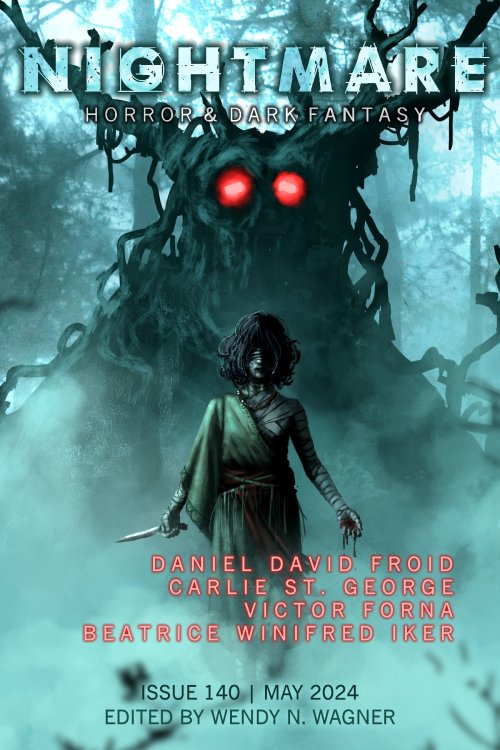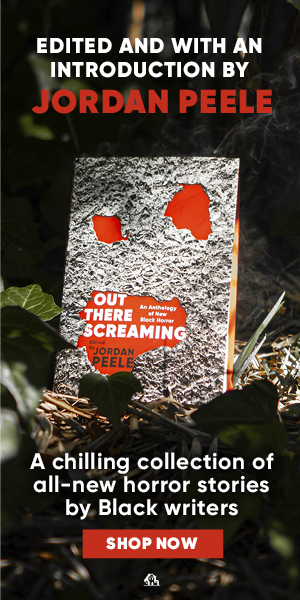Content warning:
Stalking, murder, self-harm, blood, pregnancy and miscarriage
One could, if necessary, hide between the studs in your wall. Shoulders, narrower than the gap. Back against the plywood of the exterior panel; chest, when fully inflated with breath, pressing against the lath and plaster. Room enough to disappear.
This was mine before it was yours.
Single story 1920s bungalow, three bedrooms, an unfinished basement and an attic crawlspace. Flower beds in the front. Garden space in the backyard. In the door frame of the second bedroom, lines scratched to mark the top of a growing boy’s head. Room to start a family.
Your keeper put his arms around your waist, his hand with the gold band on the outside. He asked if you liked it.
There were others before, but I wanted you. Far from home. Young but already starting over. Lonely.
I braced my knees against the runners in the attic and looked down at you through holes and cracks they never found. They ran water through the old pipes, current through the copper veins, and shined light in my dark places. Easy enough to go unseen. Everyone talks loud when they don’t know they’re being listened to.
When the yellow crocuses bloomed, movers carried furniture down ramps and up the front steps. You pointed to tables, a couch, a bed, his things, to rooms you imagined could someday be yours. You carried a suitcase of your winter clothes from the trunk of a salt-rusted car and raced against a hail shower. Frozen drops bounced off your skin and clattered against the roof above me. Millions of pellets. Enough to cover the green grass white.
If you waited, everyone told you, the sun would break through.
You took inventory of what you had and what you missed. You stood in window light, waiting for him come home, and for no reason at all you said, “Hello?”
I mouthed it back to you, my tongue brushing the back of my front teeth.
Unpacking boxes that night, you told him you had the funniest feeling.
“Old houses,” he told you and you said, “That must be it.”
In the master bedroom, the bed—his bed—whined when you tossed and turned or told him you loved him.
Most days, with you both gone, I moved down your halls and through your rooms. I opened your drawers and felt the imprint of your handwriting on notes you left for yourself. My skin turned to dust blanketing your picture frames. The things I moved and the doors I opened or closed, I wanted you to see. I disappeared small things; a mailbox key, a travel toothbrush, sunglasses, and moved others, a potato peeler from one drawer to another, rearranged the order of books on your shelf.
I never took anything he couldn’t explain away. Box cutter must be in a different drawer. Must have already used the last match. One of your mother’s necklaces, the cross on a fine silver chain, must have been lost in the move.
He left during the spring storms. You told him to be safe and call when he got there. You talked every night between your dinner and his midnight. He asked after your day and you said, “You don’t need to worry,” and he believed you.
One night the weather blacked out the house. You counted thunder and said your mother’s prayers before bed. Prayers against shifting wind and all of her cancers that might someday find you. The windows rattled, scraped by branches and splattered in rain, but you felt safe because this house—our house—had stood for a century.
I slid between the hardwood and the bottom of your bed. When your hand fell over the side, I nearly took it. The lights came back by morning and by then you were confident that you’d imagined me.
The heat came early and your keeper returned with it. I could smell his late April sweat, while he fucked a child into you. I heard you, separated by the headboard, a half inch of gypsum and backer paper. His gold banded hand pressed against you. He told you that you would be a beautiful mother.
You pissed a positive pregnancy test weeks later and cried with your underwear around your ankles before you told him. It’s what you always wanted, you said.
But I knew.
I wrapped a fine silver chain around my hand tighter until I bled. I didn’t want you the way he wanted you. I didn’t want you in a way that could be shared.
The counter with the wood block where you sunk your knives. The drawer where you stored your rusty tools. If I wanted to, I could have done it so many times.
Too soon the taste of things turned on you. Everything too bitter, a gritty texture between your teeth. The books told you it would pass. The books told you there was no need to worry.
He left again when the heatwave killed the flowers and your garden and the drought took the green from the front grass. You laid nauseous in front of box fans that offered no relief. This house, with empty space between the inner and outer walls and thin windows, was not meant for nights that didn’t cool, and your body, weak and abandoned, wasn’t meant for a child.
You lost it in a stain of red on his mattress and couldn’t tell him until he came home. He put arms around your waist. He said you could try again. He carried the mattress away and replaced the bed. I put your mother’s cross for you in an old jewelry box.
Our house already had a family.
Your mood darkened as the dry August turned to smoke-choked September. Ash fell on everything that was once green. Your keeper silver-taped black plastic over doors and windows. He listened to the radio for evacuation notices. The background noise covered my wheezes in the walls and attic. You curled in on yourself in the center of the new quiet bed with the prayers you didn’t say out loud; your mother’s prayers.
The rain saved us. Enough to flood the flower bed and the concrete floor of our basement. The days changed from orange to deep gray, and you begged him to stay. He delayed and delayed but finally he had to go, he said. You promised to talk to the doctor again and you promised to fill your plastic pill boxes and you promised to call him every night between your dinner and his midnight and he kissed you on the forehead and he left.
They always left.
The medicine the doctor gave you, it might have worked. You opened empty days. You counted and recounted pills in the middle of your hand. You checked the dates on your orange bottles and in one of your jewelry boxes you found your mother’s cross.
Everything died in a hurry for winter. Our house, drafty and cool, eased into darker months. He came and went and you called and you tried. You fucked silently and bought pregnancy tests that could never give you the answer you wanted.
Vermin came with the first freeze. In cold like that, they clawed their way through any crack they could find. I caught mice and rats with bare hands. I snapped them one by one and left them to desiccate in his closet.
You told him you heard footsteps. My footsteps. He took you back to the doctor. His trips went longer and his meetings ran later and later.
A cold snap coated the power lines and bare branches with enough ice that they broke. Branches snapped louder than thunder cracks and, not far away, relay stations popped and sparked. The electric vents in the floor gave us nothing. You stayed in your bed, beneath the covers, and waited while my fingertips blackened. I sucked them, the gory popsicles, to fight necrosis.
Our house, venerable and unsuited for these new winters, kept the cold as selfishly as the heat.
On the second frozen night you left spare blankets out in the living room. I returned them folded the same way when the power was restored four days later.
Your keeper bought an emergency generator and a gallon jug of gasoline. He apologized and apologized and apologized to you. You flushed all of your pills down the toilet and when you fucked him you did it loud enough that you knew I would hear.
You didn’t talk about me again. You knew what they would say and the medicines they would want you to take. Medicine he wanted you to put in your plastic pill box to control you.
But the medicine I gave you, the grit between your teeth, was just enough poison to keep you free.
You started drinking bottled water, eating prepackaged food. You put padlocks on the cabinets and small cameras in every room. When he asked you why, you didn’t try to explain yourself. He wasn’t around often enough to care.
You were pregnant again in time for the yellow crocuses and when the thunderstorms returned he lit your room with battery lights. Before the spring ended he had a unit installed in the window of your bedroom.
He suggested you could air condition the entire house and you said that wasn’t necessary. You painted over the door frame with the marks my mother made for me and in the notes you left yourself, you wrote, “This is mine.”
Did you think I would leave like everyone else? Did you think the smoke would choke me or the ice would freeze me? Did you think the drill bits, sunk into the walls while he was away and holes filled before he returned would find me? The traps you set, the poisoned food you left—did you think any of it could drive me from you?
I was born here and I waited so, so long for you.
You brought your son home with Christmas lights still in your windows and for those first months your keeper stayed. You slept beside a monitor, stirring at any creak, running to his crib with a hammer or kitchen knife in your hand. You put brighter bulbs in all of the sockets, a lock on the nursery door, and when your keeper left—he would always leave, you knew—you made a bed next to his crib.
I quieted and hid but you still felt me, didn’t you? In your spine where a mother knows.
Once when you took the baby in the stroller for a walk, I stood in your bedroom as long as I could manage. I used to feel safe here, with you and before you with my mother, sick like yours. But my body, now too long and thin, stooped over, bones remade for creeping, not standing still, ached and wobbled. The space and light, dizzy, strangling. Hidden for too many years. I fell on bony praying knees and recalled our mothers’ words. My voice barely an atrophied creak. I slunk back again, into the walls before you returned.
Your son grew and grew and the fires came closer and closer. The storms raged and the ground froze and the generator he left for us spat diesel black but warmed us enough to endure.
You may have forgotten me, convinced yourself I was a ghost or nightmare but for the family portrait your boy made in crayon. You with your arms around his waist and me, a shadow on the other side of a Christmas tree.
“Is this Daddy?” you asked him, and he shook his head and you asked, “who is this?” and grabbed his shoulders hard enough to make him cry. He was either afraid to say or didn’t know how. He didn’t understand your anger. How could he? You tore the paper from him, balled it up and tossed it into the trash. Hours later, awake with insomnia, you found the drawing gone and knew I never left you.
I would never leave, Amanda. I will die in our home.
Your keeper came back when the yellow crocuses should have bloomed but they wouldn’t. The flower bed and garden, weed ridden and fallow. You told him that you wanted to move to a new house, that your family needed more room, and he told you that he was leaving again, that there was someone else, and that he wouldn’t return. He set his gold band next to your jewelry and you took your son and left so he wouldn’t see you cry and then, when we were alone, I cut through your keeper with the box cutter.
Bleeding out from his throat, he saw me with my knees set on his chest. I had been something denied or disbelieved. The settling of the foundation. Our old house’s secrets. He saw me and knew it all and I took his eyes.
I dug them out with my bony fingertips and filled the cavities with the pills he once tried to choke you with and stuffed the gold band into his mouth. I cleaned the blood with his travel clothes, hid his luggage in the attic crawlspace, and dragged his body beneath the front deck where the heat would ripen it if the rats didn’t get to him first.
The forecasters say fire season is coming earlier than ever. The seasons are sharper now. My mother’s prayers spoke of the end of the world, of forgiveness for sins done. In the end, her hand in mine while she passed, it was just us. I’ve been waiting for Armageddon ever since.
Our house, a century strong, where I grew into marks cut into the door frame and my mother cut through my brothers and herself with the same blade—where I kept you safe—now stands in the path of a blaze they say will not be stopped by highways or firemen. Our house whose walls hid me from her, sheltered us, and held back wind and cold, where I pin the family portrait your son made with my image a smear of dark crayon; how could we leave?
How could we stay?
You pour gasoline down the hall. Your winter clothes are in the trunk, your mother’s cross is around your neck, and your son is in his car seat. In the end it’s just us.
If I wanted to, I could have done it so many times.
You idle in the driveway, maybe waiting for me or daring me, maybe just to be sure, and I light a match.
Share
Spread the word!










